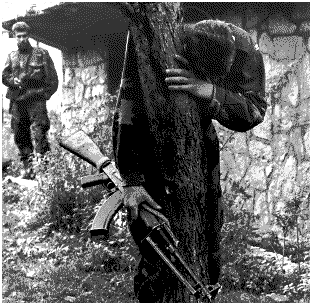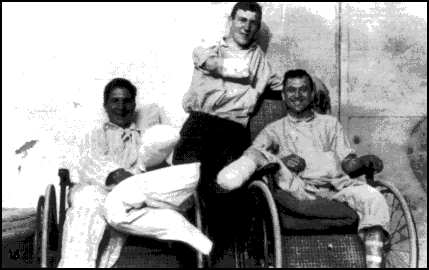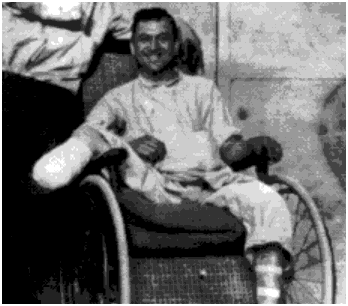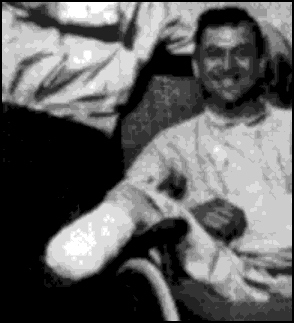Long Way
Sebastian Barry
(Viking)

- "It was a wonder they had thoughts at all still in their heads. Brains poached and scrambled by noise, terror and foul deaths."
 The language is simple, poetic --- but accurate in its depiction of trench warfare;
this, as Willie and his company march through the fields of Guillemont,
The language is simple, poetic --- but accurate in its depiction of trench warfare;
this, as Willie and his company march through the fields of Guillemont,
- The approach trench was a reeking culvert with a foul carpet of crushed dead. Willie could feel the pulverized flesh still in the destroyed uniforms sucking at his boots. These were the bodies of creatures gone beyond their own humanity into a severe state that had no place in human doings and the human world. They might be rotting animals thrown out at the back of a slaughterhouse, ready for the pits, urgently so. What lives and names and loves he was walking on he could not know any more; these flattened forms did not leak the whistle tunes and meanings of humanity any more.
Barry is able, as all great writers must be able, to pull beauty out of horror (and the reverse). This is an account of the first phosgene gas attack, in St. Julian, in 1915: "There had been no warning barrage and the dense smoke didn't look too threatening. It was beautiful in a way, the yellow seemed to boil about, and sink into whatever craters it was offered, and then rise again with the march of the main body of smoke. There were still birds singing behind them, but whatever birds had been singing in front of them were silent now." And these are the thoughts of the office on duty, Captain Pasley:
- Now, in his old house at home in Wicklow there were seven fireplaces, and two or three of them were as leaky as old buckets, and when they were lit, smoke poured forth into the bedrooms above them. And that was an evil smoke, but it would not drive you back as if you were cattle, as was happening to those poor men of Algiers, now for some reason tearing off their uniforms and writhing on the ground, and howling; howling was the word for it.
The facts of war are adroit and believable: the breaking of arms of cadavers in order to be able to stuff them in the ground quickly; the rules under which they operated: "In one raking stream [of a machine-gun] two of the new boys of Gardiner Street were removed from the line; one was left screaming behind, but no one could stop to help him, it was forbidden; and "the simple pleasures ... the feeling of a hot, steaming bath after months in the trenches. At Messines ridge, "they were given two water bottles that night and the second they found was full of tea. Their boys at the kettles and the big pots far behind at the field kitchens hasn't let them down. A big stew came up after them and a double ration of rum. It wasn't the war they knew." It wasn't the war they knew. "What's that bird going on?" said Willie Dunne. "Fucking nightingale," said Christy Moran. The facts of war are presented simply, free of the burden of besotted rhetoric. There is the inarticulate language of the men, a language of the field and dying and blood and anger ... heavy with expletives but rarely touching on the truth of what they are going through. Then, suddenly, there are nervous attacks from too many days of unrelieved combat, in which Willie "couldn't stop his head jerking about, and his left arm had a mind of its own, the mind of an arm that wanted to dance a jig all the blessed day."
The facts of war are presented simply, free of the burden of besotted rhetoric. There is the inarticulate language of the men, a language of the field and dying and blood and anger ... heavy with expletives but rarely touching on the truth of what they are going through. Then, suddenly, there are nervous attacks from too many days of unrelieved combat, in which Willie "couldn't stop his head jerking about, and his left arm had a mind of its own, the mind of an arm that wanted to dance a jig all the blessed day." The guns had stopped a good few hours and the land about had returned to itself. It was like a new country, a fresh place. The summer rain had loosed the smells of everything, the new grass that was boldly coming up everywhere like a crazy green beard, the briefly drenched woods all about. There were even nightingales in the woods that any man could hear for himself and wonder at.
 Richest of all, at least for this reader, is the subtle change that takes place in Willie Dunne's soul ---- slowly, so much so that he scarcely notices it, the author telling us of it almost by suggestion: the evolution of boys from the world of Ireland, finding themselves no longer boys, but bitter men, thrust in the mud and rats of Flanders fields, a new world of death and gas and the arms and legs and heads of their mates, strewn about everywhere; and Willie, of an evening, back a bit from the lines, in an improvised concert with his mates, turning to song --- they say he was blessed with a magic voice --- and he starts on the "Ave Maria," "And Willie sang, and maybe in truth he was an amateur, his breathing ... was jagged and awkward, but the admiration of his dead mother was in it --- indeed, as Willie's mind now leaped to think, to remember, the tone of a child in a room in Dalkey singing to his mother, after the birth of his sister Dolly that killed her, his father sitting sternly back in the scullery and going out for a sudden walk into the dark, God knew where,"
Richest of all, at least for this reader, is the subtle change that takes place in Willie Dunne's soul ---- slowly, so much so that he scarcely notices it, the author telling us of it almost by suggestion: the evolution of boys from the world of Ireland, finding themselves no longer boys, but bitter men, thrust in the mud and rats of Flanders fields, a new world of death and gas and the arms and legs and heads of their mates, strewn about everywhere; and Willie, of an evening, back a bit from the lines, in an improvised concert with his mates, turning to song --- they say he was blessed with a magic voice --- and he starts on the "Ave Maria," "And Willie sang, and maybe in truth he was an amateur, his breathing ... was jagged and awkward, but the admiration of his dead mother was in it --- indeed, as Willie's mind now leaped to think, to remember, the tone of a child in a room in Dalkey singing to his mother, after the birth of his sister Dolly that killed her, his father sitting sternly back in the scullery and going out for a sudden walk into the dark, God knew where," And Willie aged eleven sneaking in to see her, a thing he had forgotten till this moment of singing, to be with her, and him singing that song to her, with the pennies on her eyes, and the midwife cleaning the baby in the front parlour, and no one there in the bedroom, only the distant heave of the Dalkey sea, and his song, "Ave Maria, full of grace, the Lord is with thee," and his mother's face not listening and listening, and similarly now he sang for these ruined men, these doomed listeners, these wretched fools of men come out to fight a war without a country to their name, the slaves of England and the kings of nothing --- in Christy Moran's secret, bitter words.
We might compare A Long Long Way from Home to other WWI novels, Goodbye to All That, The Good Soldier Svejk, Three Soldiers, and Pat Barker's endlessly noodling trilogy, Regeration; most of all, All Quiet on the Western Front --- with the cameraderie of the troops,the constant disappearance of friends; the loss of self; knowing just too much; and the final contrast between warmth and family and the cold life of the trenches, which becomes preferable to the imperfection of "normal" life. Willie's last days come close to those of Remarque's Paul Bäum. Most particularly, the fact that the end for our two unsung heroes comes on the same day in October of 1918, a month before Armistice.It's a long way to Tipperary,
It's a long way to go.
It's a long way to Tipperary
To the sweetest girl I know!
Goodbye Piccadilly,
Farewell Leicester Square,
It's a long long way to Tipperary,
But my heart's right there.